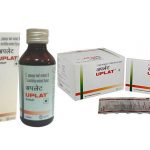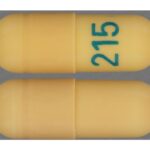5 Facts About The Ingestible Electroceutical Appetite-Control Capsule (FLASH)

A team of researchers from Brigham and Women’s Hospital, Massachusetts Institute of Technology, and New York University has developed an ingestible capsule known as FLASH (Fluid-wicking Active Stimulation and Hormone modulation). FLASH, which can electronically stimulate hunger-regulating hormones, potentially offering a treatment for gastrointestinal, neuropsychiatric, and metabolic disorders.
The capsule can modify ghrelin, a hunger-regulating hormone, in pigs through electrical stimulation of the stomach, and can be safely excreted without side effects. The system has potential applications for treating certain gastrointestinal, neuropsychiatric, and metabolic disorders. The researchers were inspired by the Australian lizard Moloch horridus, or “thorny devil,” which has fluid-wicking skin, allowing it to better absorb water in arid regions. The researchers mimicked this lizard skin feature in the creation of its surface-treated hydrophilic capsule design, which can wick away fluid and retain the capacity to hold an electrode to support stimulation. The team plans to continue this research for translational human application and is looking at how the approach might work in other areas of the body.
The team discovered that electrical stimulation supported the production of ghrelin, a hormone that regulates hunger and eating, and investigated the underlying mechanisms of this effect. They found that the response was mediated by the vagus nerve, the longest autonomic nervous system nerve that connects the brain and gut. To stimulate the release of this important hormone, the team set out to create an ingestible capsule that could emit electronic signals and move through the body, eventually being excreted.
During the study, the team endoscopically stimulated the inner surface of pig stomachs for twenty minutes and found that ghrelin increased in those with intact vagus nerves. The point of contact between the capsule and the stomach tissue was analyzed via CT scans. The FLASH system, which folds up electronics and a battery source inside of the capsule, was shown to reproducibly increase levels of ghrelin in pigs.
The team plans to investigate how FLASH and similar ingestible electroceuticals could be used to treat eating disorders and metabolic diseases, and they are continuing their research for translational human application. The potential of this development lies in the fact that it doesn’t require new drugs, but rather works alongside our physiological systems for the benefit of the person.
In the study, the researchers endoscopically stimulated the inner surface of pig stomachs for 20 minutes using the FLASH capsule and found that ghrelin increased in those with intact vagus nerves. CT scans were used to analyze the point of contact between the capsule and the stomach tissue. The FLASH system, which folds up electronics and a battery source inside the capsule, was shown to reliably increase ghrelin levels in pigs.
The researchers believe that the FLASH capsule has potential applications for treating gastrointestinal, neuropsychiatric, and metabolic disorders. It could be used to treat eating disorders and metabolic diseases without the need for new drugs, as it works alongside the body’s physiological systems for the benefit of the person.
The team plans to continue their research for translational human application and investigate how FLASH and similar ingestible electroceuticals could be used to treat other areas of the body. This development opens up many new avenues for research into the complex interconnections between the brain and gut and for furthering the use of electroceuticals as a clinical intervention.
FACTS
- FLASH stands for Fluid-wicking Active Stimulation and Hormone modulation and is an ingestible capsule that electronically stimulates the hunger-regulating hormone ghrelin in pigs.
- The capsule is inspired by the fluid-wicking skin of the Australian thorny devil lizard, which allows it to better absorb water in arid regions.
- The capsule emits electronic signals and moves through the body, eventually being excreted, and has potential applications for treating gastrointestinal, neuropsychiatric, and metabolic disorders.
- The FLASH system is designed to emit electronic signals while wicking away fluid from the stomach to maintain good contact with stomach tissue.
- The team plans to continue researching for human application and explore treatment options for eating disorders and metabolic diseases using the FLASH system and similar ingestible electroceuticals.
Reference: “Bioinspired, fluid-wicking, ingestible electroceutical capsules for hunger-regulating hormone modulation” by Khalil B. Ramadi, James C. McRae, George Selsing, Arnold Su, Rafael Fernandes, Maela Hickling, Brandon Rios, Sahab Babaee, Seokkee Min, Declan Gwynne, Neil Zixun Jia, Aleyah Aragon, Keiko Ishida, Johannes Kuosmanen, Josh Jenkins, Alison Hayward, Ken Kamrin and Giovanni Traverso, 26 April 2023, Science Robotics.
DOI: 10.1126/scirobotics.ade9676
Funding: This study was supported in part by a grant from Novo Nordisk, at the Massachusetts Institute of Technology (MIT) , the MIT Koch Institute’s Support (core) Grant from the National Cancer Institute, the National Institute for Diabetes and Digestive and Kidney Diseases, the Division of Engineering at New York University Abu Dhabi, a National Science Foundation graduate research fellowship and the Karl Van Tassel Career Development Professorship and the Department of Mechanical Engineering at MIT.





